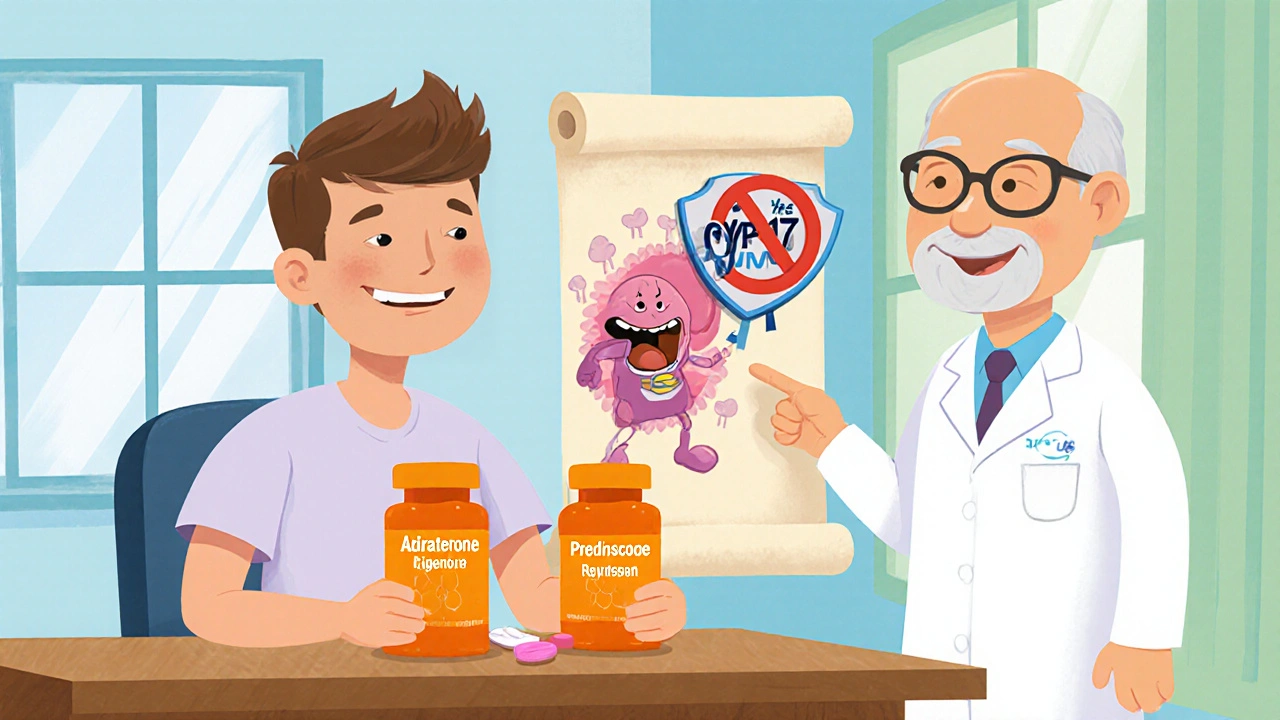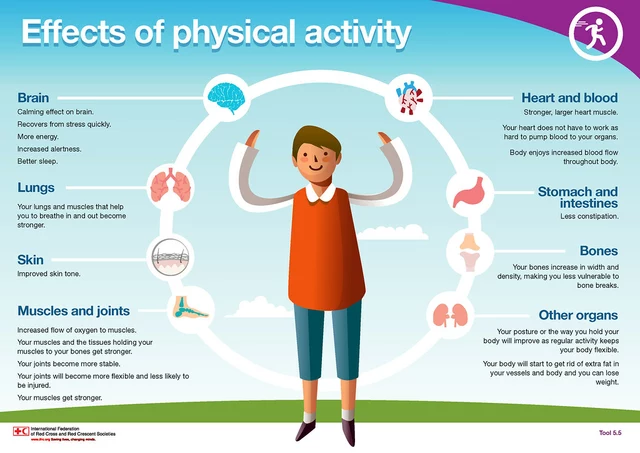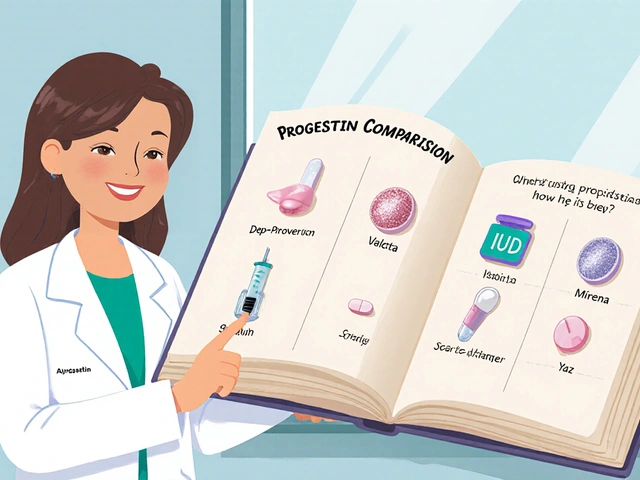Abiraterone: What It Is and Why It Matters
When working with Abiraterone, a prescription drug that blocks the CYP17 enzyme to lower androgen production. Also known as Zytiga, it is used primarily for advanced prostate cancer. In simple terms, Abiraterone is a CYP17 inhibitor that stops the body from making the male hormones that fuel tumor growth. Abiraterone reduces androgen synthesis → lower androgen levels → slowed prostate cancer progression. The FDA approved it in 2011 after trials showed a clear survival benefit for men with metastatic disease. Since then, doctors have added it to the standard toolbox for hormone‑driven cancers, especially when other treatments stop working.
How Abiraterone Fits Into Prostate Cancer Care
Understanding Prostate Cancer, a malignancy that relies heavily on male hormones for growth helps explain why Abiraterone works so well. Most prostate tumors keep growing as long as they receive testosterone or dihydrotestosterone. That’s why Hormone Therapy, treatments that lower or block androgens has been the backbone of care for decades. Traditional hormone therapy usually means surgical castration or drugs that shut down testicular testosterone production. However, the adrenal glands and tumor itself can still make enough androgens to keep the cancer alive. This is where Abiraterone steps in: by blocking CYP17, it shuts down that extra source, making the overall androgen environment much harsher for the tumor. In practice, doctors often pair Abiraterone with low‑dose prednisone to manage the drug’s impact on mineralocorticoid pathways, creating a more balanced hormonal blockade.
Beyond the mechanism, patients need to know what to expect when they start therapy. Common side effects include high blood pressure, low potassium, and fluid buildup, all linked to the drug’s effect on cortisol pathways. That’s why the Androgen Deprivation Therapy, the broader strategy of reducing male hormones umbrella recommends regular blood‑test monitoring and a short course of prednisone to offset these risks. Large Phase III studies—COU‑AA‑301 for post‑chemotherapy patients and COU‑AA‑302 for chemotherapy‑naïve men—showed that adding Abiraterone to standard ADT extended overall survival by several months. The typical dose is 1,000 mg taken on an empty stomach once daily, followed by 5 mg of prednisone twice a day. Patients should keep an eye on blood pressure, potassium levels, and liver enzymes, and report any severe side effects promptly. By following these simple checks, many men manage the therapy with minimal disruption to daily life. abiraterone offers a concrete way to push the disease back when other hormone treatments have worn thin, and understanding its role can empower patients to make informed decisions.
Below you’ll find a curated set of articles that dive deeper into related topics—drug comparisons, safety tips, and the latest research—so you can get a full picture of how Abiraterone fits into your health plan.
19
Abiraterone's Impact on Metastatic Prostate Cancer Treatment
Explore how abiraterone reshapes treatment for metastatic prostate cancer, covering its mechanism, key trials, guidelines, side‑effects and emerging combos.
Latest Posts
Popular Posts
-
 OTC Heartburn Medications: Antacids, H2 Blockers & PPIs Explained
OTC Heartburn Medications: Antacids, H2 Blockers & PPIs Explained
-
 Meniere’s Diet: How Sodium Restriction and Fluid Balance Reduce Vertigo and Hearing Loss
Meniere’s Diet: How Sodium Restriction and Fluid Balance Reduce Vertigo and Hearing Loss
-
 Duloxetine and Liver Health: What You Need to Know About Hepatotoxicity Risk
Duloxetine and Liver Health: What You Need to Know About Hepatotoxicity Risk
-
 Celiac Disease: Gluten-Free Living and Nutrient Supplementation
Celiac Disease: Gluten-Free Living and Nutrient Supplementation
-
 Spinal Cord Injury: Understanding Function Loss, Rehabilitation, and Assistive Devices
Spinal Cord Injury: Understanding Function Loss, Rehabilitation, and Assistive Devices



